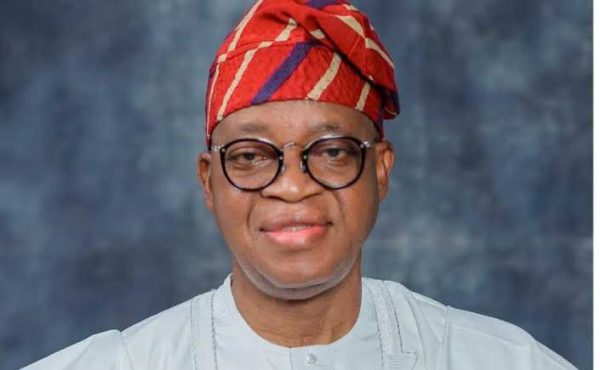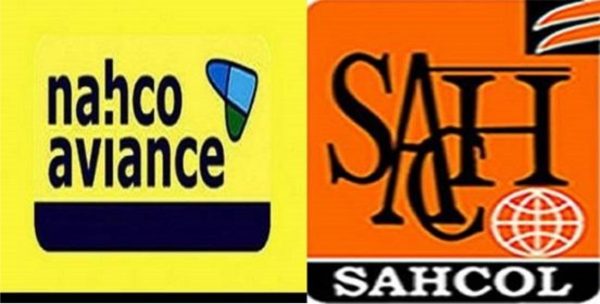Marine And Blue Economy: The Long Road To Take Off
By Enyeribe Anyanwu

When President Bola Tinubu announced the creation of Marine and Blue Economy in August 2023 as a new federal ministry, there was excitement and commendation for the President. Maritime experts and operators applauded the President for the creation of the ministry because of the enormous benefits blue economy held for the nation.
There was hope in the air that with the coming of the new ministry, Nigeria was getting ready to harness the vast economic opportunities that abound in her oceans and other aquatic ecosystems.
Unfortunately, nearly one year after, the fundamentals of operating marine and blue economy are yet to be put in place. In fact, nothing remarkable has been done. The Ministry of Marine and Blue Economy may have started operations as a ministry, but the marine and blue economy is yet to start. Head of the new ministry appears to see his job as simply supervising the maritime agencies that were excised from the Ministry of Transportation.
During the ministerial briefings marking President Bola Tinubu’s first year in office, I waited with keen interest to hear what the Minister of Marine and Blue Economy, Adegboyega Oyetola, would tell Nigerians as his achievements in the new ministry. . After some ministers had reeled off their abstract and imaginary achievements; after they had marked their own scripts and scored themselves high as they were expected to do –since they were provided the opportunity to so –it was the turn of Oyetola.
Like most of his colleagues, Oyetola enumerated abstract achievements, talking about activities which, maritime observers know, had been going on in the maritime agencies over time. He failed to tell Nigerians what they expected to hear from the minister of the new Ministry of Marine and Blue Economy.
In his briefing, Oyetola announced that his ministry recorded an income of N242 billion in the first quarter of 2024. He said the revenue represented a 92 per cent increase from the N126 billion recorded in Q1 of 2023, attributing the increase to “a 10 per cent increase in the number of vessels calling our ports due to strategic investments in port infrastructure in the last one year, mooring boats, patrol vessels, and dredging of the ports’ channels.”
Oyetola also said, “We have tightened revenue assurance by deploying technology,” adding that the ministry had commenced the roll out of some initiatives such as commissioning of revenue enhancement studies focused on the ministry, departments and agencies in order to improve the revenue performance. The objective of the study, he said, was to identify and block leakages.
He also spoke about automation of revenue collection processes to eliminate bottle-necks and enhance transparency and accountability, among other extraneous things. Suffice it to say that all that the minister said were far from what Nigerians expected to hear from the pioneer minister of Marine and Blue Economy.
And if one may ask, when did the federal ministries in Nigeria, whose job is supervisory, become revenue generating institutions that give revenue figures as achievements? The revenue figure quoted by the minister, was it from NIMASA, NPA, NIWA or Nigerian Shippers Council? Or is it from indigenous shipping companies, terminal operators or Customs revenue from customs commands operating at the seaports and marine environments?
Does the figure represent total revenue from the maritime sector within the period under review or is it money made by the ministry from its own activities? And what are the strategic investments made in the maritime sector in the last one year that increased the ministry’s revenue?
Of course, these questions have no answers. They are only meant to highlight the absurdity of the revenue figure and the abstract achievements as given by the Minister. To stop beating about the bush, the minister’s speech, like those of his fellow ministers sounded like the usual speeches and claims of politicians.
What Nigerians expected to hear from the minister was that a roadmap, the policy framework for the marine and blue economy has been launched. That as a result of the clear-cut roadmap, investments have started pouring into the sector. Recall that in October last year, the Minister announced that plans were underway to launch a road map for the marine and blue economy.
He noted that charting a policy agenda for the sector was critical to transforming the sector into the best in class, regionally and internationally, after identifying the dominance of foreign shipping companies and infrastructure deficits as some of the challenges facing the maritime sector.
At the same forum, the minister said, “it is imperative that we move more quickly towards improving the navigability of our waters, engage the draught of our ports, achieve 24-hour cargo clearance, and ensure adequate connectivity of our ports to hinterlands with efficient road and rail networks.”
At the ministerial briefing, Nigerians would have loved to hear how the minister had matched words with action regarding all these things he said, especially the launching of a road map for the sector, which experts and operators have been clamouring for since the creation of the ministry.
Maritime experts and policy makers have been harping on the imperative of a blue economy roadmap. Former Director-General of the Nigerian Maritime Administration and Safety Agency (NIMASA), Dr Dakuku Peterside, while calling for a road map said the foundational thing to do to enhance the blue economy was to put in place an attractive road map that would woo investors into the sector.
According to the former NIMASA DG, creating a policy framework and ecosystem that will be attractive and simple to understand, measurable, accessible, easy to appraise, and setting targets will enhance the blue economy in the country.
He said if investors know the resources available, the policies in place and other frameworks that the government has put in place to harness the blue economy, they will come to invest, especially if transparency and accountability are entrenched in the roadmap.
Essentially, the blue economy is also known as the marine economic system, referring to economic activities that take place in and around huge bodies of water such as oceans and rivers. Fishing, wastewater treatment, tourism, seaside hotels and restaurants, power (wind energy and tidal power), and transportation are all part of the economic system. It also includes ships, barges, rigs, and other floating vessels.
The questions for the Ministry of MBE then are: What is the policy direction of fishing in Nigeria? What has been done, as part of efforts to harness the blue economy, to stop poaching and illegal fishing by foreigners? What about inland water transportation of goods and persons? What is the government doing about coastal tourism which is a money spinner for countries that have embraced blue economy?
With regards to shipping, what has Oyetola’s new ministry done to change the narrative of foreign dominance of shipping in Nigeria? What has been done to enhance Nigeria’s participation in international shipping, or even to take full control of her cabotage shipping? What has been done differently in the maritime sector in the last one year?
One thing maritime operators and observers had wanted to hear from the minister was that the Cabotage Vessels Financing Fund (CVFF) had been disbursed to indigenous ship owners to enable them take control of the nation’s inland and cabotage trade. The CVFF has accumulated over the years with government playing hide and seek with indigenous ship owners. Yet, when the occasion demands, they make glowing speeches concerning shipping development and foreign dominance of shipping.
Once again, it needs be reiterated that blue economy emphasizes fisheries, coastal tourism, maritime transport, aquaculture, seabed extractive activities, marine biotechnology and bio-prospecting, etc. It is not all about the activities of NIMASA or NPA and other maritime agencies.
For proper take off and sustenance of blue economy, experts say, there must be a comprehensive policy or harmonised law. South Africa, one of the champions of the blue economy, has an Ocean Act and has implemented an integrated ocean governance regime to actualise her blue economy policy. While the most notable thing Nigeria has done is the establishment of Ministry of Marine and Blue Economy –without harmonised policy or legislation that will drive the blue economy.
For Nigeria to be serious with blue economy, there must be adequate legal framework. Some of the existing legislations that deal with activities in the maritime environment have become obsolete and need to be amended to reflect the emerging areas of interest.
For example, experts say, the Sea Fisheries Act 1992 does not have a provision for Illegal, Unreported and Unregulated Fishing (IUUF) and other evolving fisheries sustainability principles which were not considered at the time of its enactment. A new law is, therefore, absolutely needed as fisheries is an essential component of a prosperous blue economy. Marine fisheries is said to contribute more than US$270 billion annually to global GDP.
Nigeria loses out of this because of large-scale illegal, unreported, and unregulated fishing? In fact, the country is said to lose $600million annually to IUU fishing by foreign vessels while it spends $800 million annually on fish importation. To curb this, there should be licensing and regular monitoring of foreign vessels operations in Nigerian waterways and oceans.
According to experts, the legislations in Nigeria do not cater for the utilisation of ocean resources as a means of tourism/tourist attractions, despite Nigeria boasting of vast coastline, lagoons and other aquatic ecosystem. Some areas in Nigeria that have been identified for coastal tourism as key component of blue economy, include Ibeju Lekki, Ogun Waterside, Eti Osa, Akuku Toru Rivers, Nike Lake, Oron, Ibeno, Degema etc.
While President Tinubu should continue to receive commendation for the creation of Ministry of Marine and Blue Economy, he must be told that putting the right person in charge is key to realizing the vision of the ministry. Only experts, professionals and statesmen can drive the vision, and not politicians.
Professionals and passionate statesmen are needed to develop and implement a modern and comprehensive regulatory framework for the blue economy. They are needed to implement the policy that will enable the country to gain the benefits of ports and shipping, fisheries, aquaculture, sustainable blue energy, ocean mining, coastal tourism, oil and gas, blue carbon and other ecosystem services.
Nigeria needs a law which will recognise and reflect the emerging maritime resource interests and modern ways of exploiting and protecting the aquatic ecosystem. Similarly, obsolete legislations in the maritime industry should either be amended to reflect modern realities or repealed and re-enacted to enable Nigeria to maximise its blue economy potentials. Only round pegs in round holes can do this.
Above all, the President must understand that for new and critical ministries such as the Ministry of Marine and Blue Economy, professionals who understand what their jobs entail, should be put in charge, not career politicians whose minds and thoughts centre on the next election.






